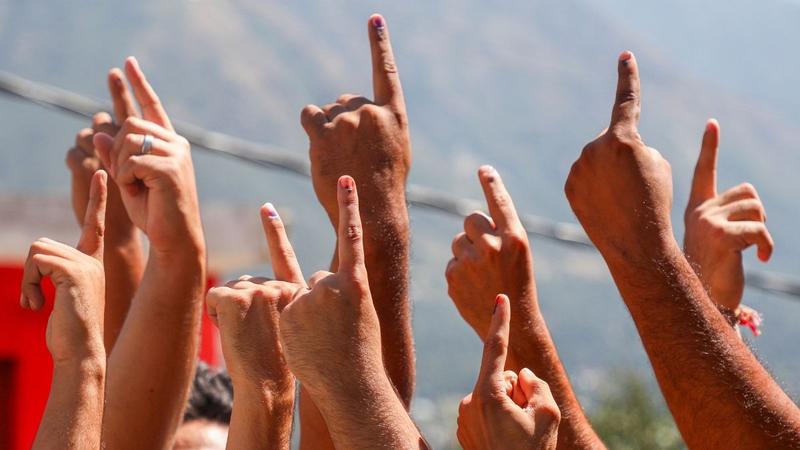Published 12:44 IST, December 17th 2024
One Nation, One Election: What Will Change If the Bill is Approved?
The ‘One Nation, One Election’ Bill, which proposes simultaneous Lok Sabha and state assembly elections, has been tabled in the Lok Sabha.

The ‘One Nation, One Election’ Bill, proposing simultaneous Lok Sabha and state assembly elections, was tabled in the Lok Sabha today. Union Law Minister Arjun Ram Meghwal introduced the constitutional amendment bill during the Winter Session of Parliament.
Additionally, Union Minister Meghwal also tabled proposals to amend the Government of Union Territories Act, 1963, the Government of National Capital Territory of Delhi Act, 1991, and the Jammu and Kashmir Reorganisation Act, 2019. The law minister is expected to request that the bill be referred to a Joint Parliamentary Committee for extensive consultations.
What is the ‘One Nation, One Election’ Bill?
The bill aims to conduct simultaneous elections for the Lok Sabha and State Assemblies across the country. Prime Minister Narendra Modi has advocated the proposal, emphasizing its potential to “strengthen democracy” by minimizing the disruption caused by frequent elections.
Supporters of the bill argue that holding elections together will save time, effort, and resources. Further it will allow governments to focus on governance without constant election-mode interruptions. It will also help in streamlining the election process and administrative planning.
The bill proposes adding Article 82(A) to the Constitution to enable simultaneous Lok Sabha and State Assembly elections. It also seeks to amend Articles 83, 172, and 327 to redefine the terms of Parliament and State Assemblies, along with the powers of Parliament over elections.
Simultaneous elections were earlier practiced after independence but were discontinued in 1967 due to the premature dissolutions of some state assemblies.'
Only seven states hold elections concurrently with the Lok Sabha polls currently. Among them, Andhra Pradesh, Odisha , and Sikkim participated in simultaneous voting during the April-June Lok Sabha elections earlier this year. States like Maharashtra , Haryana, and Jharkhand conduct their polls in the latter half of a general election year.
What Will Change After the Bill is Approved?
Currently, Lok Sabha and state assembly elections are held separately, either at the end of their respective five-year terms or when a government dissolves early. The bill proposes that in the first stage, Lok Sabha and state assembly elections will be conducted together, followed by the synchronization of municipal and panchayat elections with the general election cycle
Following this, a single electoral roll will be used for all elections. The Election Commission of India (ECI) will work with state election bodies to prepare and manage voter IDs.
An implementation group, recommended by the Kovind panel, will decide an “appointed date” for initiating the system. Assemblies elected after the date will serve shortened terms to align with the 2029 general elections. For instance, a state holding elections in 2025 will have a government with a four-year term, while states holding elections in 2027 will have governments with two-year terms, both aligning with the 2029 general elections.
The Union Cabinet has already approved a phased approach for the implementation of simultaneous elections. In the first phase, Lok Sabha and state assembly elections will be synchronized, followed by municipal and panchayat elections within 100 days of the general elections.
Supporters of the bill claim joint polls will significantly cut election-related costs and improve voter turnout.
Opponents, however, highlight the need for significant changes to the Constitution and other legal frameworks to implement simultaneous elections. This would require a constitutional amendment, followed by approval from state assemblies.
Another concern raised by critics is that national issues could overshadow regional matters, potentially influencing the electoral results at the state level.
Get Current Updates on India News, Entertainment News along with Latest News and Top Headlines from India and around the world.
Updated 13:11 IST, December 17th 2024




